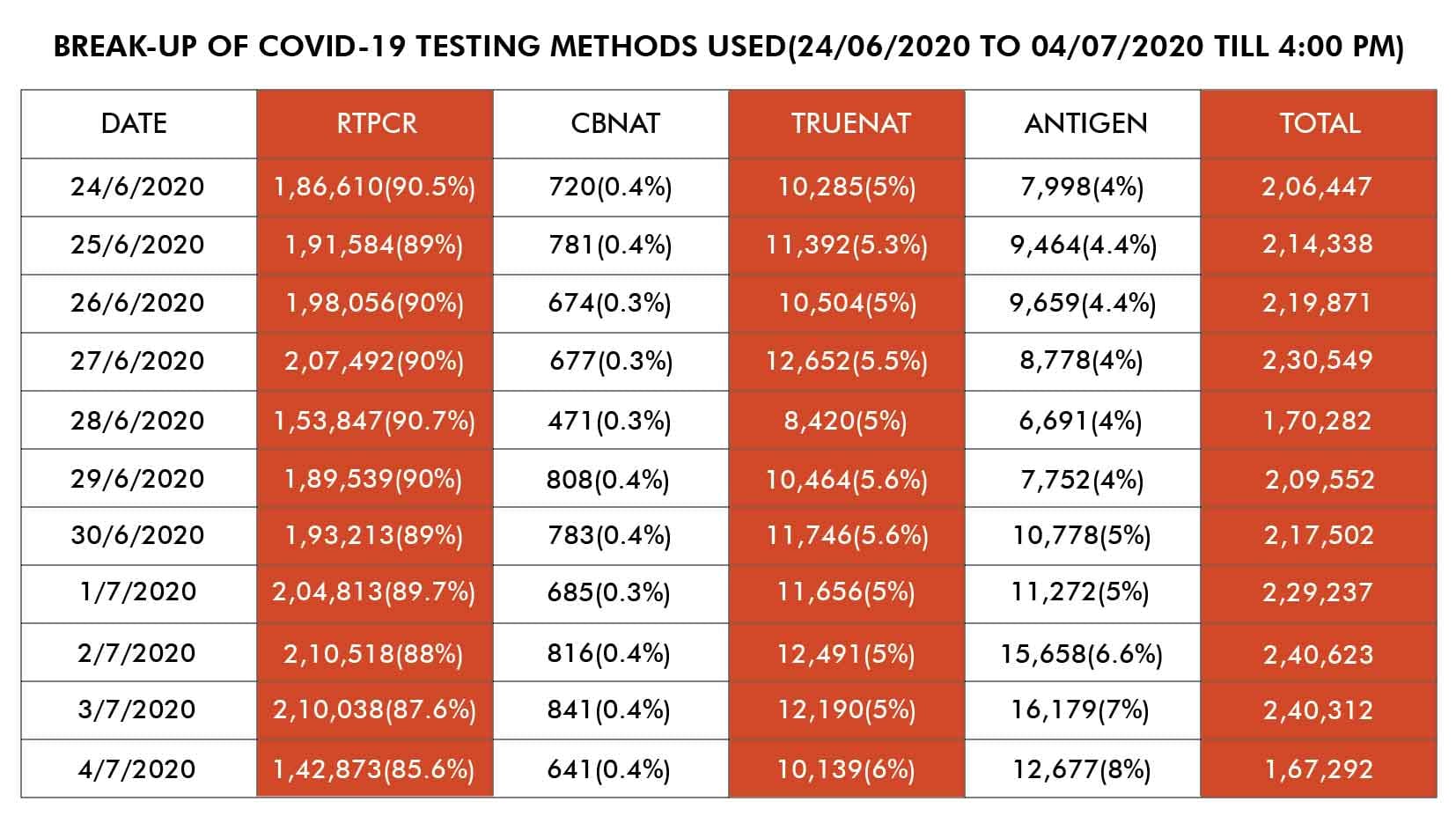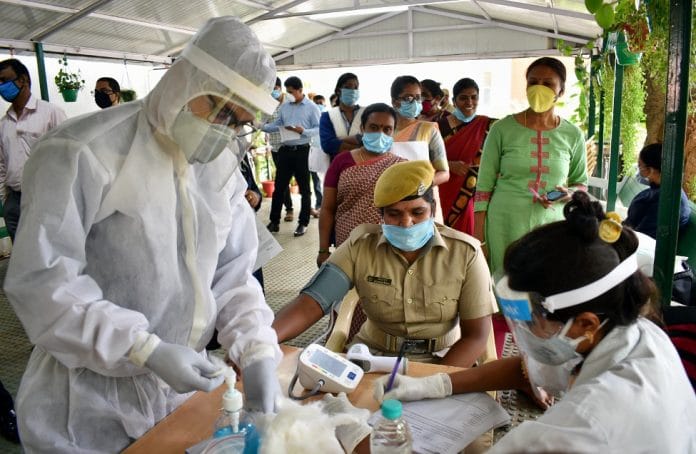New Delhi: From the very beginning of the Covid-19 pandemic in the country, the lack of testing has been a persistent theme and the predominant concern has been on whether India has enough capacity to test the “millions” of cases that are inevitable.
Five months on, with cases inching towards 6.5 lakh, and the daily testing nearing 2.5 lakh, the sheer cost of conducting the real-time polymerase chain reaction (RT-PCR) test is unsettling a number of states.
Government sources have told ThePrint that some states have informally flagged the rising reagent costs of the molecular tests. The matter also came up for discussion at a meeting in the finance ministry last week.
The RT-PCR, which is the gold standard of Covid testing, is a test that identifies the novel coronavirus (SARS-CoV2) by isolating its genetic material. It uses the enzyme reverse transcriptase to generate the corresponding DNA (SARS-CoV2 is a RNA virus) and identifies it using primers that are designed to bind to specific areas of the DNA. In order to generate enough genetic material for identification, many copies are made before exposing it to the primer.
Also read: Govt ‘reviewing’ remdesivir use for Covid after hospitals report liver damage in patients
High cost of RT-PCR reagents
The cost of reagents for conducting 10,000 RT-PCR tests comes to about Rs 1 crore, according to sources in the Union health ministry. In effect, for the 2,10,038 RT-PCR tests conducted on 3 July, the cost of reagents alone was Rs 21 crore.
In all, the country conducted a total 2,42,383 tests on 3 July.
While the total figure includes antigen and CBNAAT/Trunat tests, the testing breakup for the last 10 days shows that 85-90 per cent (1,86,610-2,10,038 between 24 June and 3 July) tests are still RT-PCR, between 4 per cent and 8 per cent are antigen tests (7998-16179 between 24 June and 3 July), 0.3-0.4 per cent of CBNAAT (471-841) and 5-6 per cent Trunat (10,285-12,190).
As of 3 July, 9,54,0132 tests have been done in the country.
Sources say this is one of the reasons why there has been a big push for antigen tests in the last few weeks. The antigen tests cost Rs 450 each.
They are also rapid and a result can be obtained in 30 minutes unlike the five to nine hours that an RT-PCR test takes. This makes them suitable for use in containment zones and other places where there is a high sample positivity rate.
The Trunat kit comes at around Rs 1,200-1,300, while the CBNAAT is a little more expensive. The two originally used in TB testing are used in smaller cities where molecular testing facilities are not easily available.

Discussions in finance ministry
At the finance ministry meeting, top government epidemiologists are learnt to have made the point that the overwhelming focus on testing should be brought down in favour of tracking, isolation and treatment.
“Some of the participants in the meeting made the point that there is no justification of doing the test when it is not in any way going to affect the course of treatment. Treatment for most cases would be symptomatic,” said a senior government official who was present at the meeting. “Testing has to be very selective. It is not easy for all states to bear these kinds of expenses over a prolonged period. Some have already informally flagged these issues.”
It was felt by senior officials at the meeting that the Indian Council of Medical Research (ICMR), which is the apex medical research organisation, should take a call on this. Interestingly, however, soon after the meeting, Health Secretary Preeti Sudan and Secretary, Health Research, Dr Balram Bhargava, sent a joint letter to the states asking them to step up testing and use the private sector more.
Several states have capped testing prices in the private sector.
The letter dated 1 July called for easing of procedures.
“It is absolutely necessary to facilitate testing at the earliest by enabling all qualified medical practitioners, including private practitioners, to prescribe Covid test to any individual fulfilling the criteria for testing as per ICMR guidelines,” it said. “…It is requested that impediments, which restrict testing, may be reduced. State authorities must not restrict an individual from testing as early testing will help in containing the virus and saving lives.”
Reagents, however, are not the only expenses. Apart from manpower that are recurring costs, India has so far procured 10 COBAS 8800 machines, at a total cost of Rs 30 crore. Each of the machines can test 1,300-1,400 samples a day.
Testing capacity ramped up
A senior bureaucrat, who is part of one of the 11 empowered committee of secretaries to manage the Covid pandemic, said India has ramped up its testing infrastructure and can conduct 5 lakh Covid-19 tests a day.
“Two lakh antigen kits are getting developed every day. As of now, 72 lakh antigen kits are available with us,” said the official, who did not want to be named.
“There is no shortage of testing facilities/kits. We can easily do 2.5 lakh RT-PCR test with the facilities available and another 2 lakh antigen test,” the official added. “An additional 50,000 tests can be conducted using TRUNAT machines.”
The official said if some states are not doing enough testing, it is for reasons other than availability of testing infrastructure. Giving the instance of Hyderabad, the official added, “In this city, 10,000 RT-PCR tests can happen daily. There are enough laboratories in the city. But in Telangana, private laboratories have not been allowed to do testing.”
Also read: ICMR wants Covid vaccine by 15 August but documents show it’s a 15-month trial







Being an aspiring scientist I can’t over this mistake. RT PCR is reverse transcriptase PCR where the one mentioned in the article is real time PCR which is qPCR or qRT PCR.